Getting Straight (1970)
“I’m not putting it down; I’ve just done it already!”
|
Synopsis: |
|
Genres, Themes, Actors, and Directors:
Review: … to draft-dodging (Robert F. Lyons plays Gould’s wacky, wily friend who is willing to try anything and everything to avoid serving): … to relationship problems (Gould and Bergen go back and forth numerous times about whether to stay with one another — and if so, in what way): … to campus unrest in various forms (the movie was filmed at Lane Community College in Eugene, Oregon). Unfortunately, all of this is way too much territory for one film — and most problematic is that we don’t really feel invested in Gould’s desired outcome of earning a teaching credential (which was the primary focus of the source novel). The college protest scenes are well worth a look (László Kovács’ cinematography is top notch as always), but this is otherwise only must-see viewing for fans of the stars. Watch for Harrison Ford in a bit role as a fellow college student: … Jeff Corey as Gould’s stern committee chair: … Cecil Kellaway (in his last role) as a kindly professor: … and Jeannie Berlin in her cinematic debut as a student activist. Notable Performances, Qualities, and Moments: Must See? Links: |
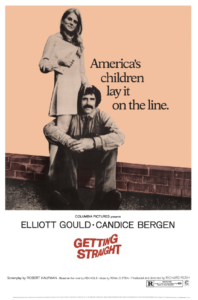
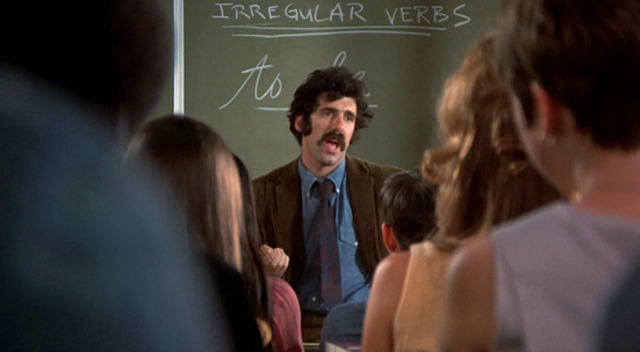
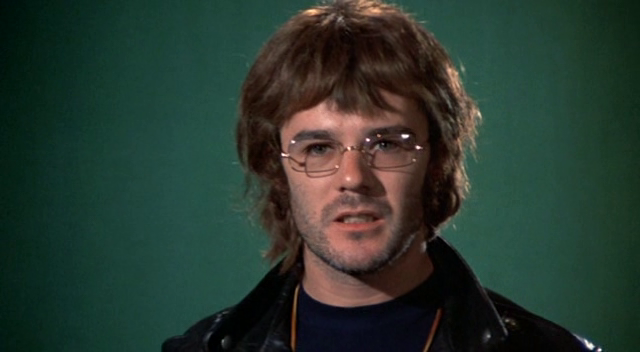
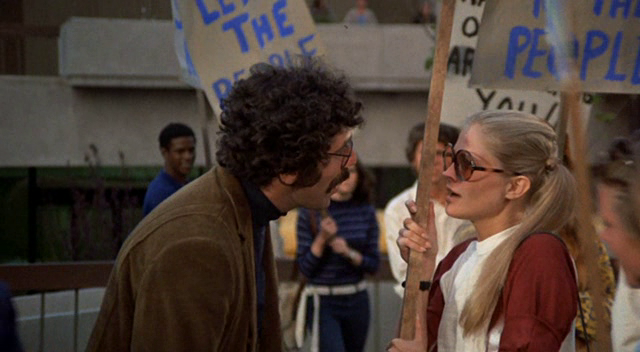
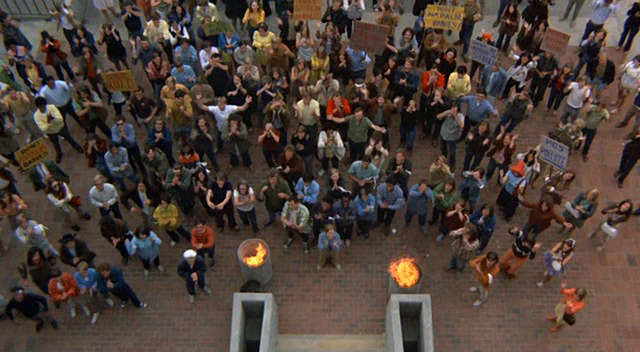
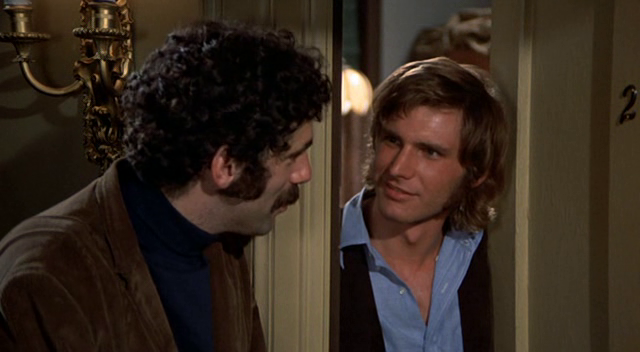
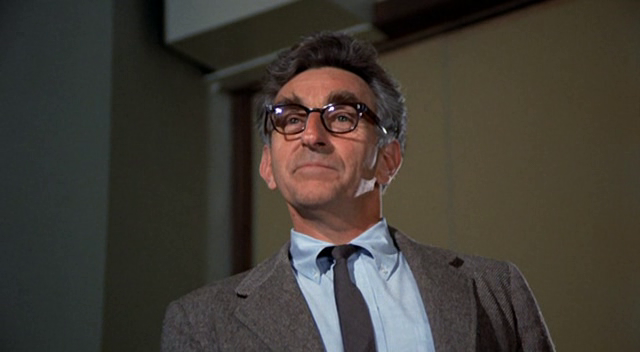
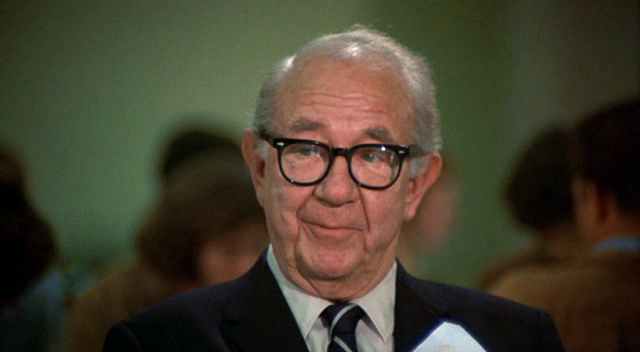
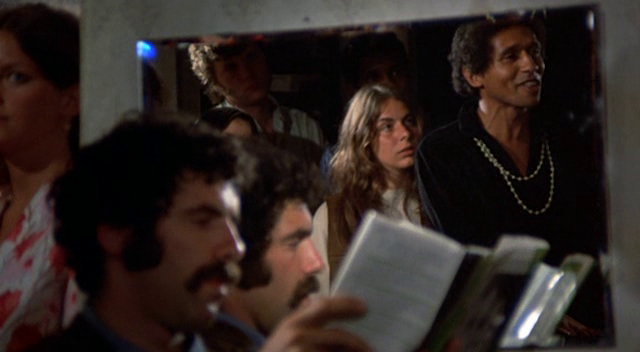
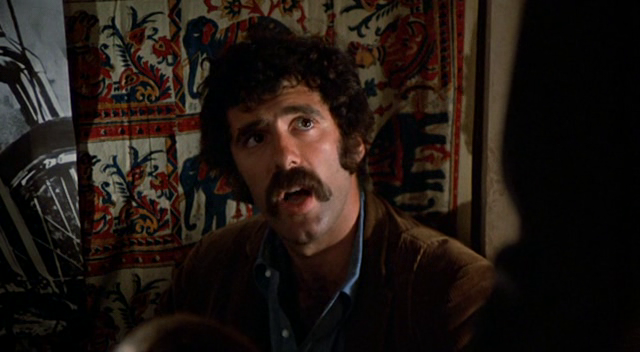
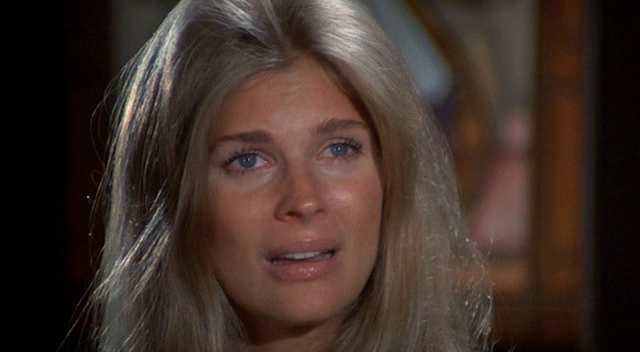
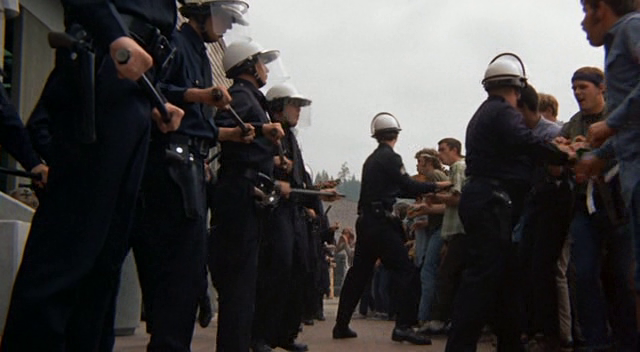
One thought on “Getting Straight (1970)”
First viewing (2/29/20). Only for those with interest in a representative ’60s campus flick.
Typically chaotic Richard Rush film. Verbose, wildly uneven, it also satirically exploits several set plot pieces beyond the point of being effective: this includes everything from Gould’s car being a hunk of junk to a college chum being a confirmed pot-head / draft dodger to Gould’s over-analyzed relationship with Bergen.
I found it easier to get through this film in half-hour segments with breaks. It does get points as a period piece for the way it captures late ’60s campus unrest – which may be the reason that, of the number of such films made at the time, this was the only one that was a box office success.
The only really compelling sequence comes at the 3/4 mark – when Gould is up against a university head, explaining to him that the school’s methods are woefully outdated and that – for a so-called progressive school – it certainly remains in an earlier decade in its refusal to adjust to diverse, present-day needs.
Gould’s oral exam for his Master’s, to which the film builds, is ambitious in the way it pits a grad student against a committee – but it sort of implodes unconvincingly as it settles for ending in an explosive free-for-all, to justify Gould’s non-conformity.